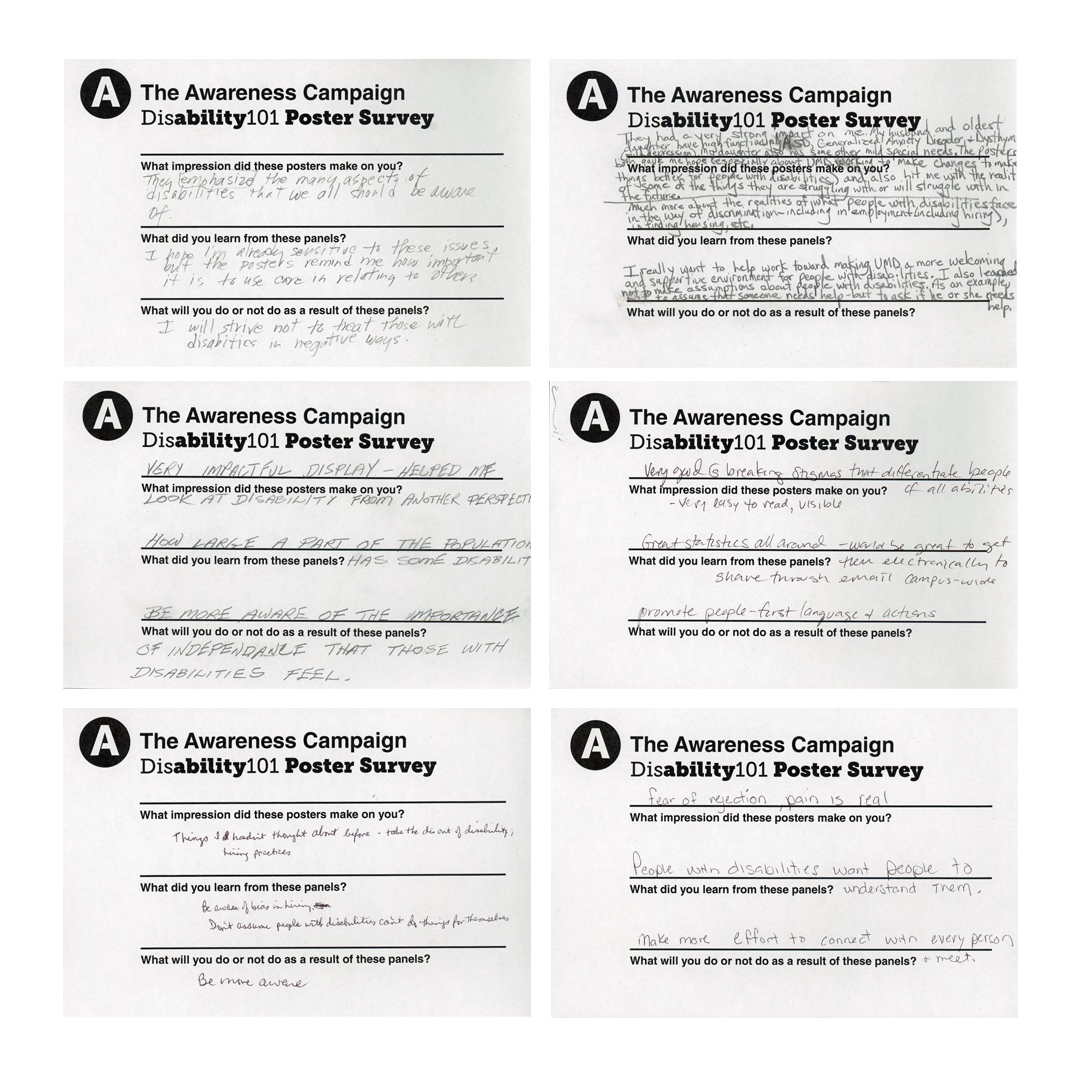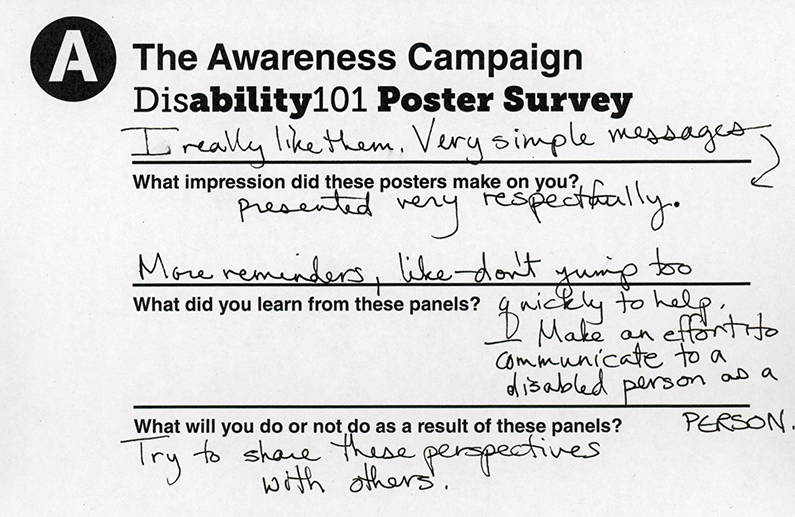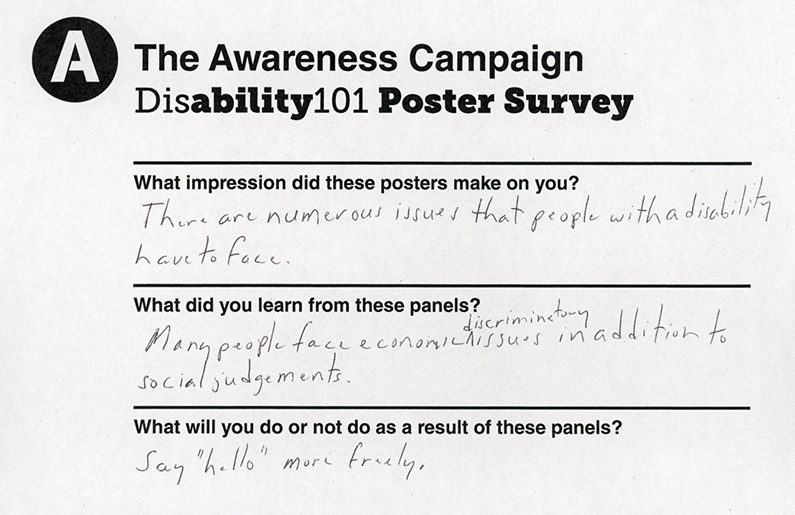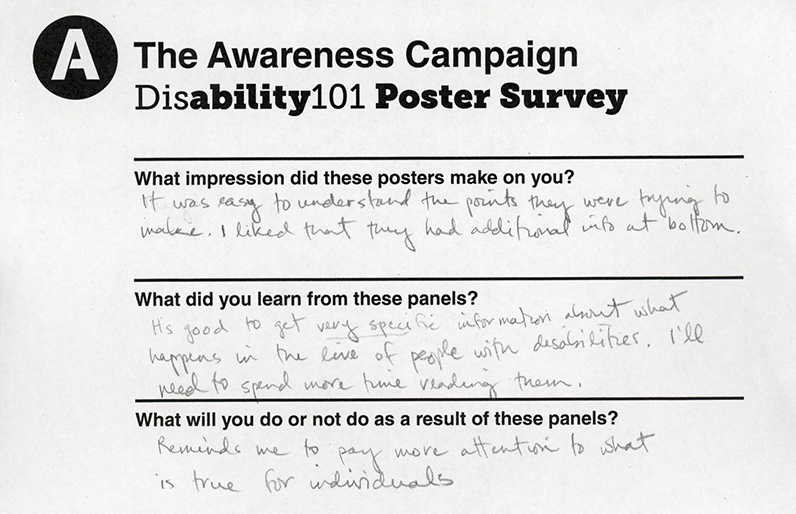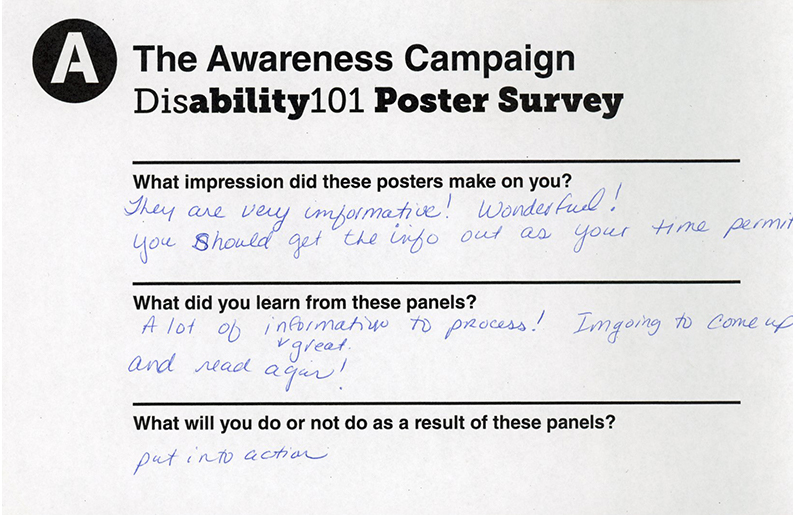Presenting Data About Disability Injustice
The Awareness Campaign produced a series of infographic posters for a set of educational forums at the University of Minnesota Duluth to discuss disability rights. The posters served as educational aids by presenting data about the injustices that people with disabilities regularly experience.
The Backstory
I received a grant from UMD to design infographic posters and host public forums to discuss disability injustice. The topics of the posters served as talking points for each forum. UMD Kirby Student Center held an exhibition for the posters to bring attention to disability rights on campus.
Several organizations awarded the posters nationally and internationally for their design excellence, most notably as a Category Winner at the ClearMark Awards by the Center of Plain Language.
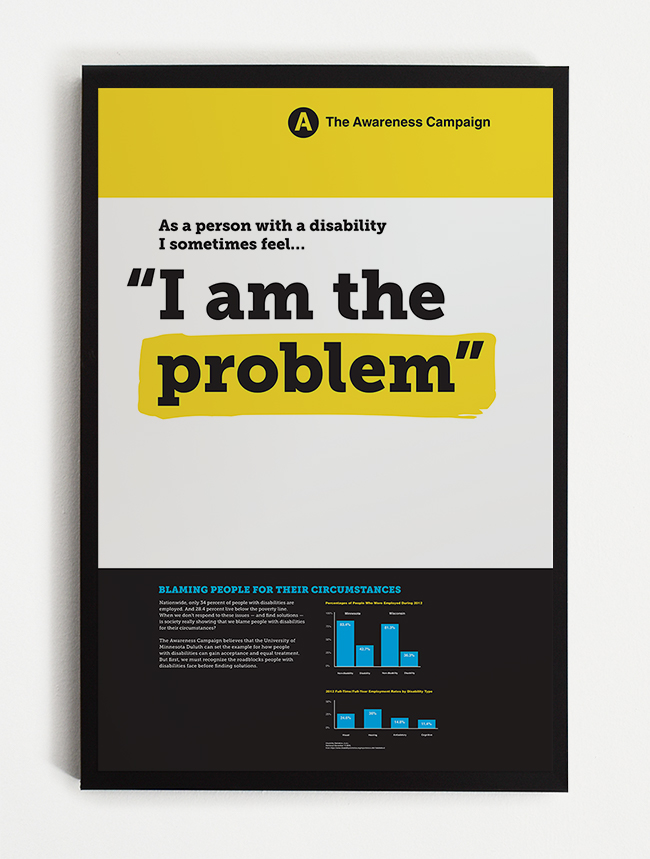
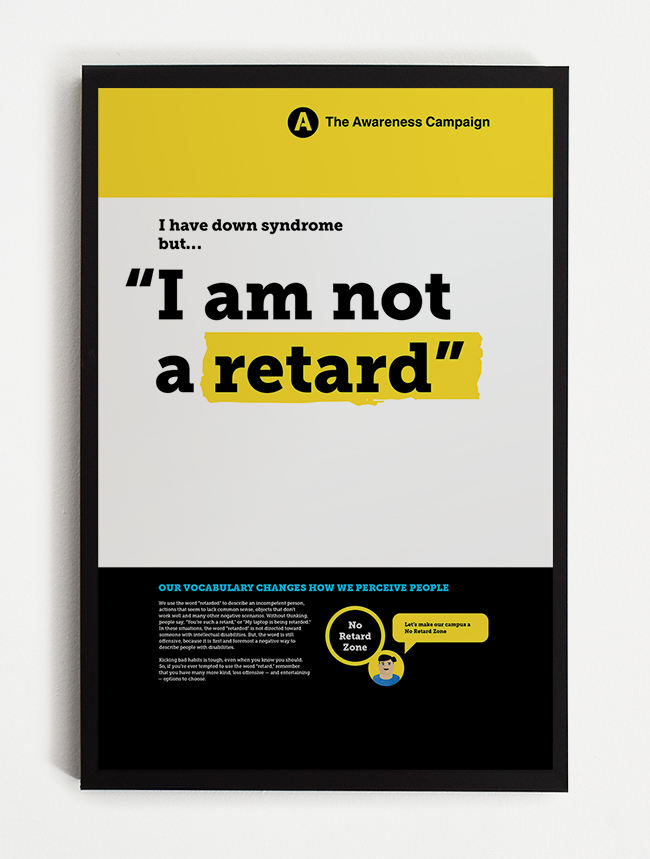
The Approach and Challenge
Communication strategists Deanna Geneva Lorianni and Meghan Codd Walker of Zuula collaborated with me to develop the posters. They did so by researching disability topics and producing the copy for the posters. We sought to ensure that the posters showed how disability injustices impact people. We did so by adding personalized quotes to each poster. The quotes were effective in starting conversations about disability rights for each forum.
Making Data Clear and Precise
Zuula and I believe that when information is visualized and made clear with infographics it can have an emotional impact. Infographics provide research-based perspectives in our efforts to advocate for disability rights. Each poster has an infographic with various diagrams and charts. The infographics have geometric shapes and flat planes of colors to make the information clear and legible.
Humanizing the Data
I used illustrative characters in some of the posters to make information personal, approachable, and identifiable as The Awareness Campaign content.
More information about the characters appears in the case study about The Awareness Campaign’s brand.

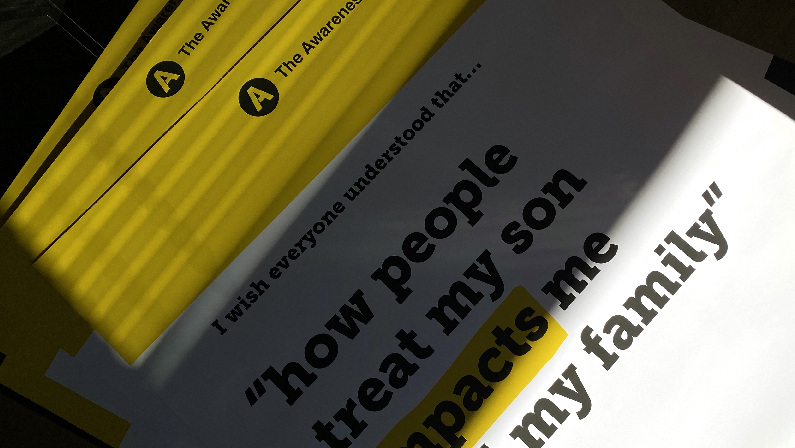
Making a Bold Statement
The posters are 24″ by 36″ in size, which gave them a visual presence throughout the UMD campus and in the exhibition. The large type size and the use of the Museo Slab’s heavy font weight carry the emotion and bluntness of each quote forward.
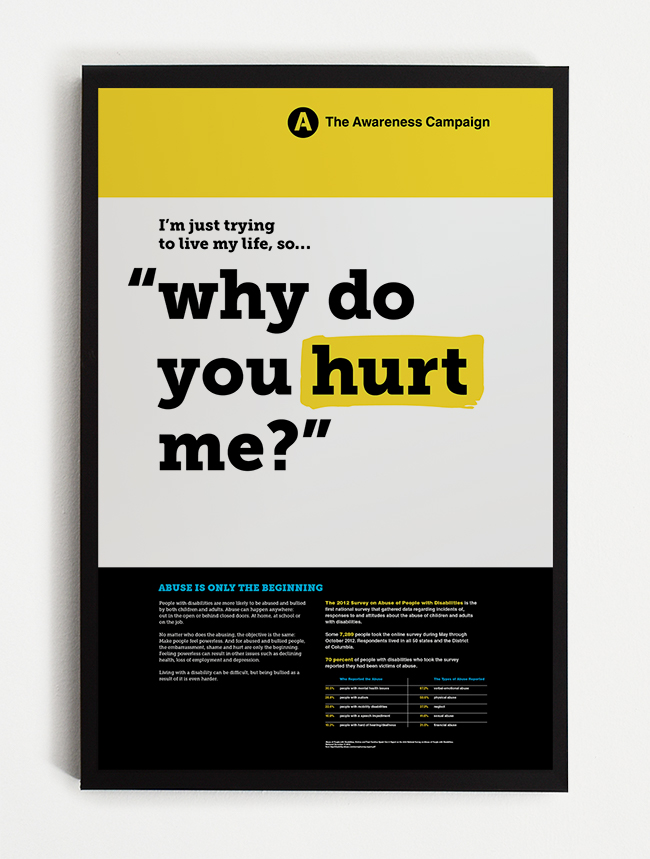
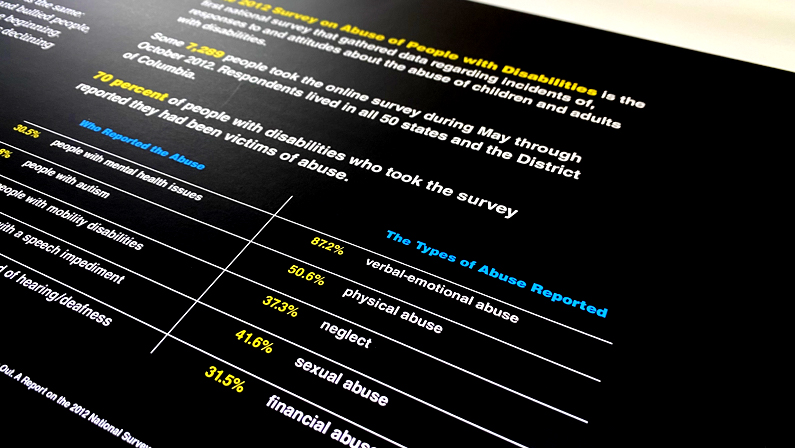
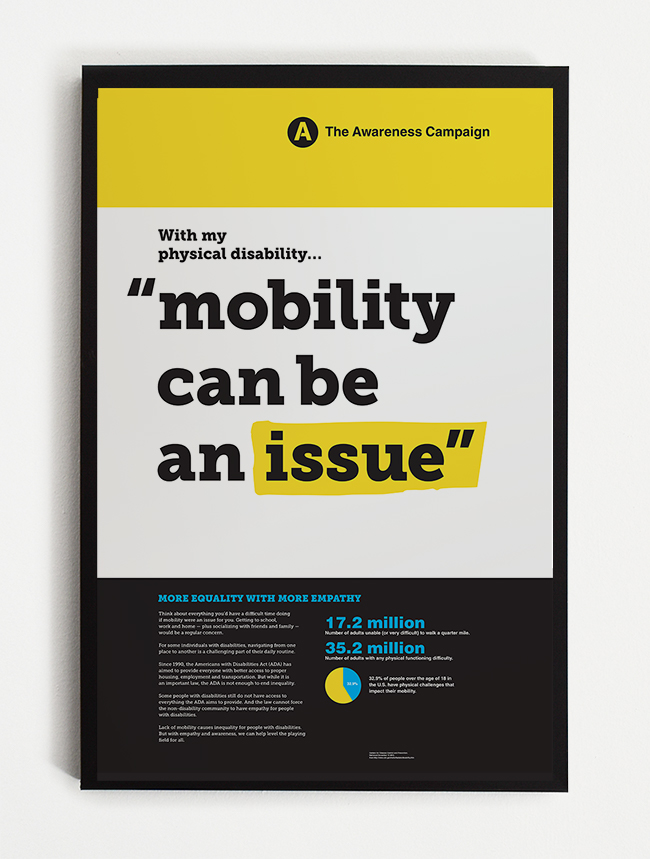
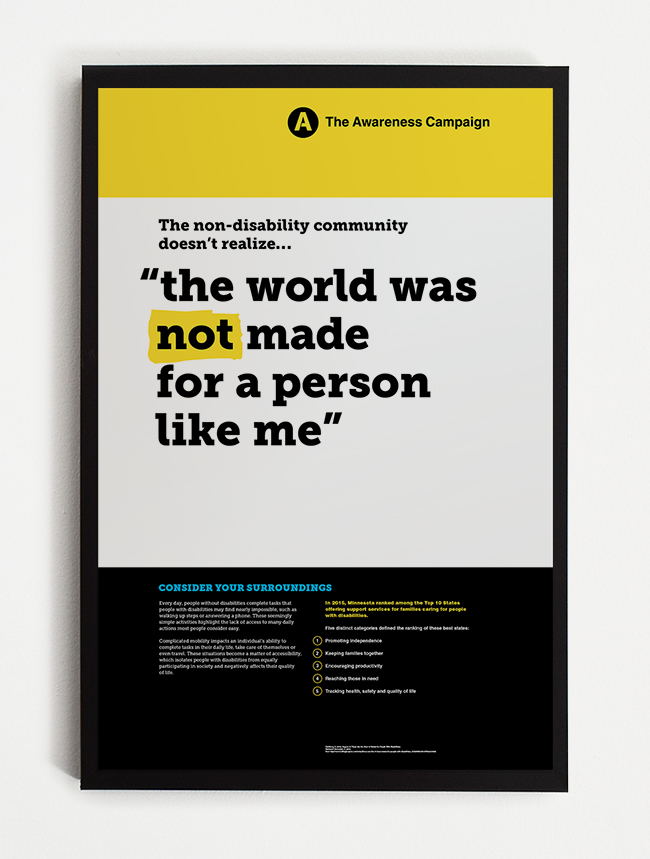

Facts about the lack of employment opportunities for people with disabilities and how society and employers blame them for their circumstances
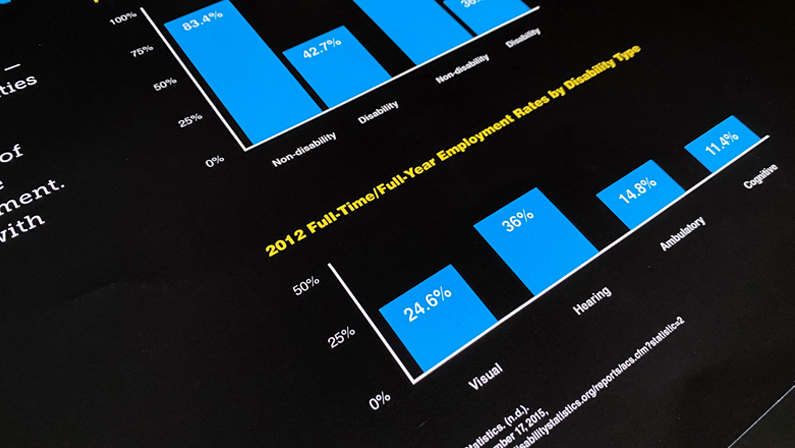
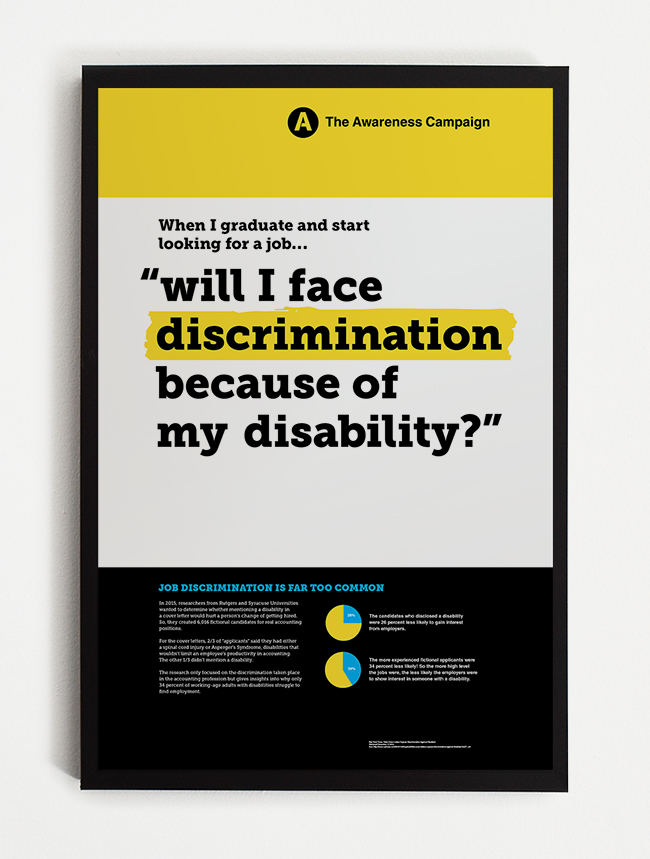
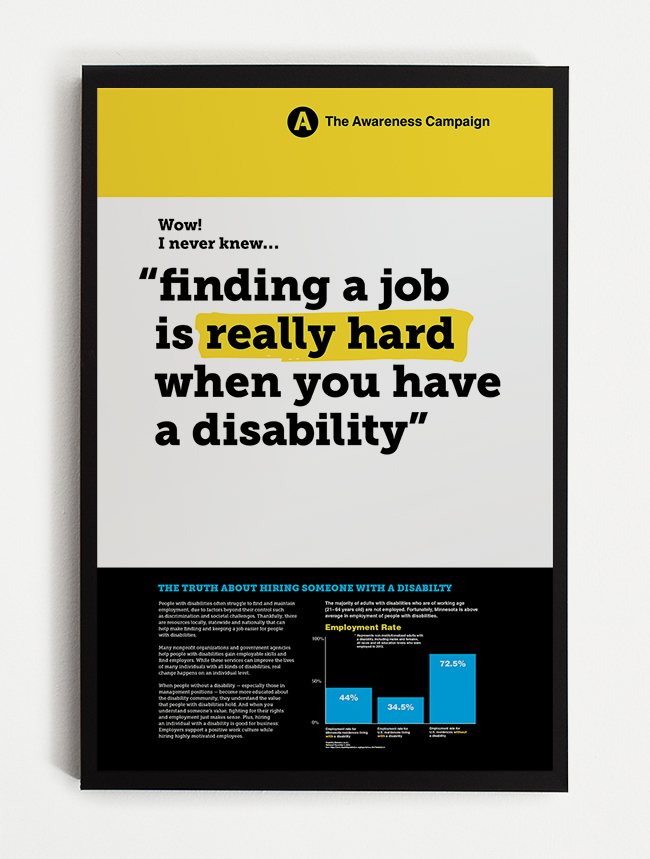
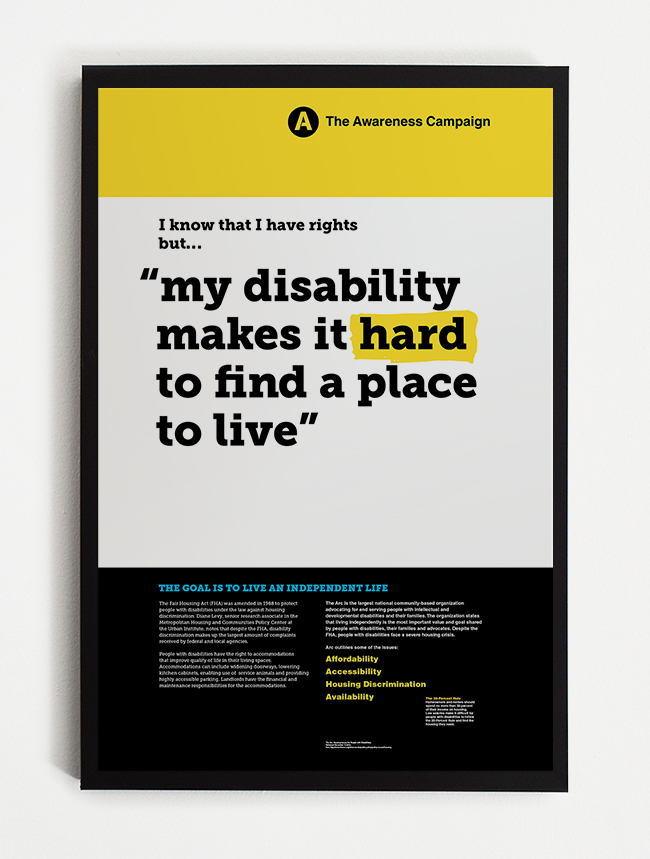
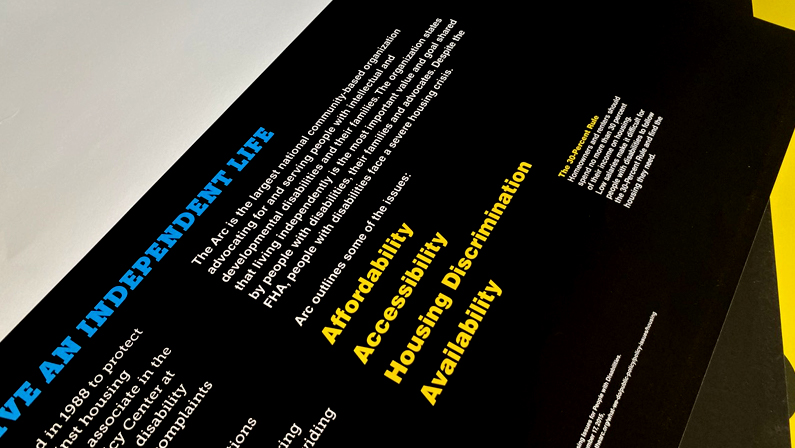
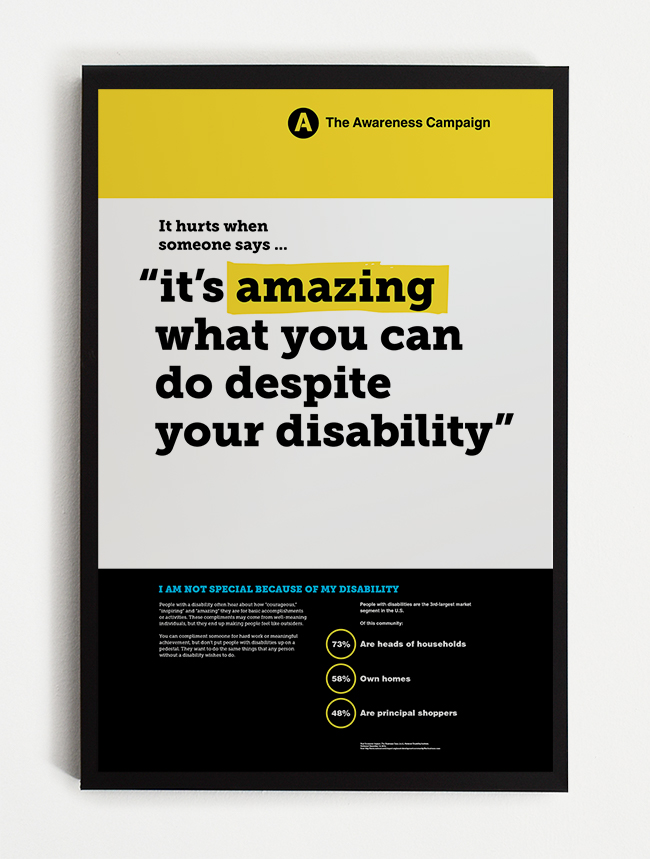
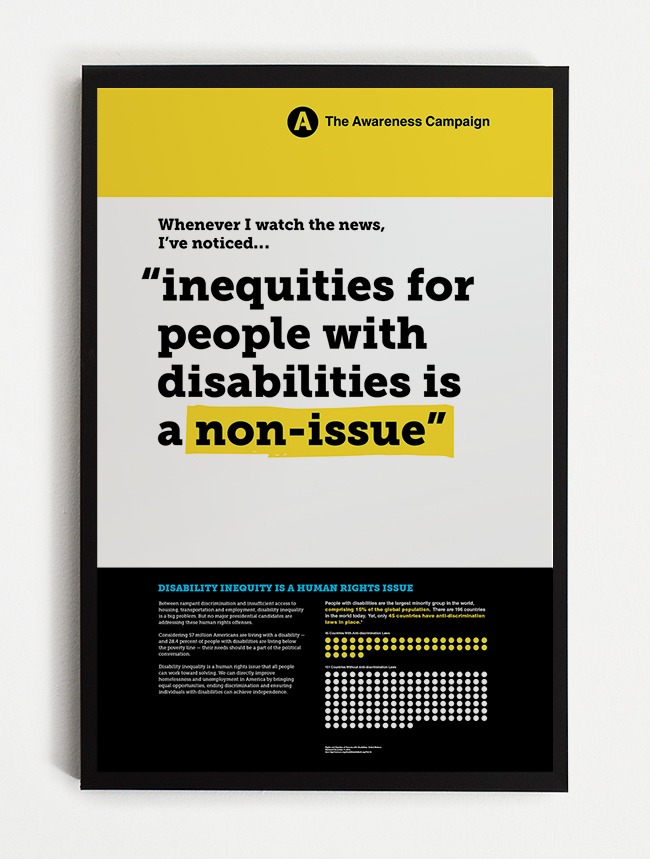
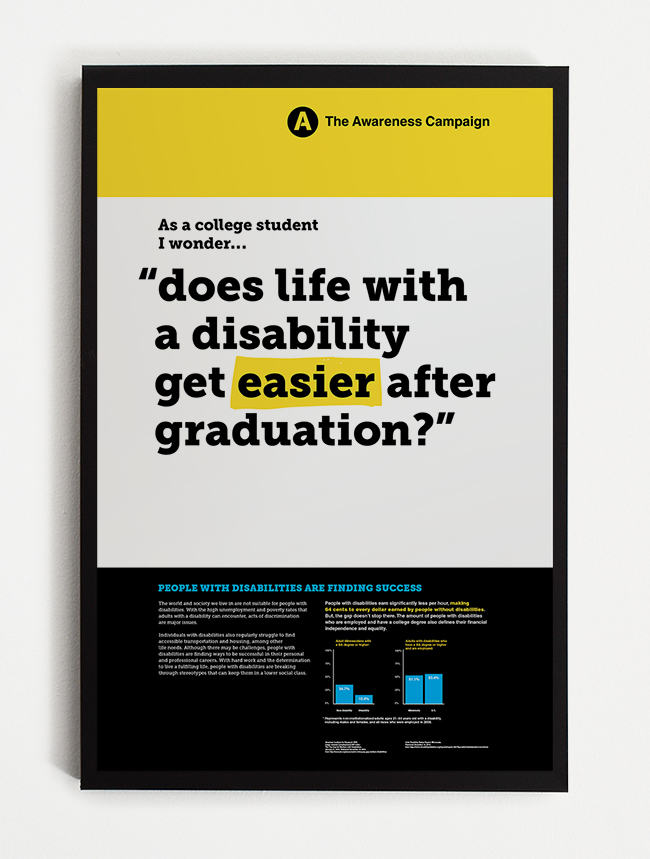
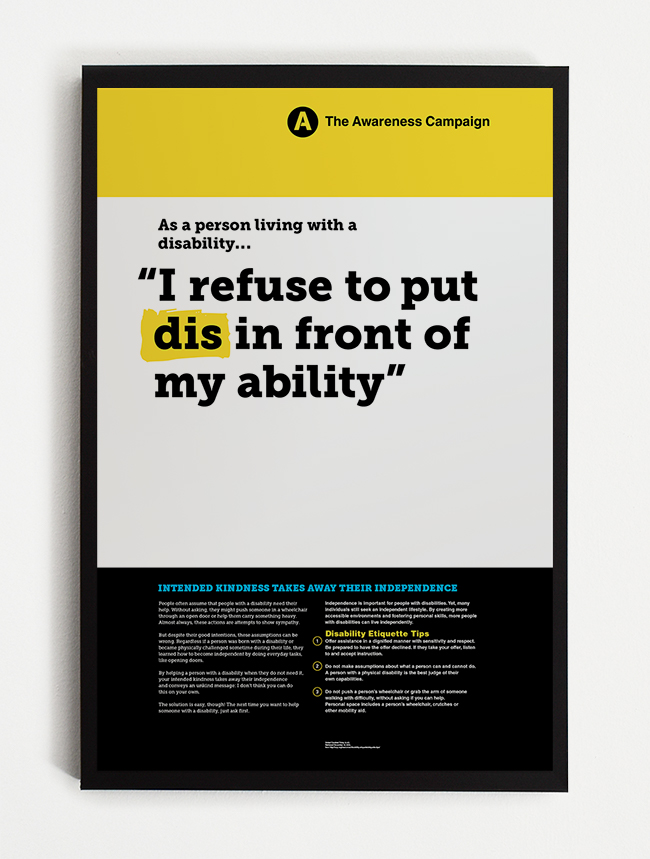
Insights about how and why the willingness to help can take away someone’s independence and causes unintended ableism
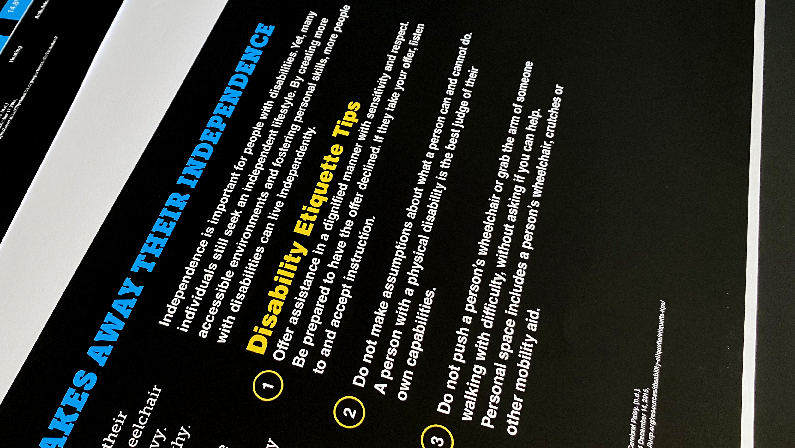
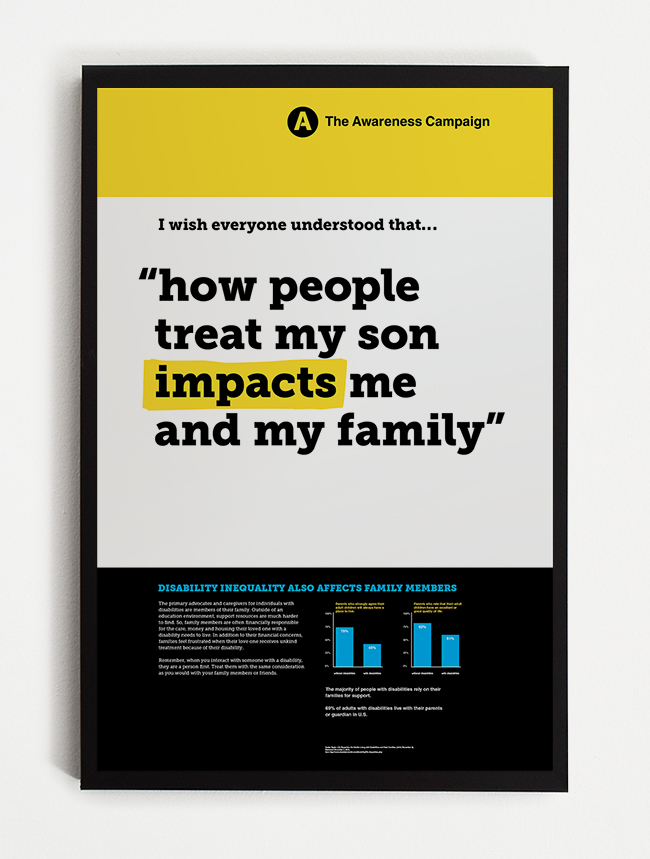
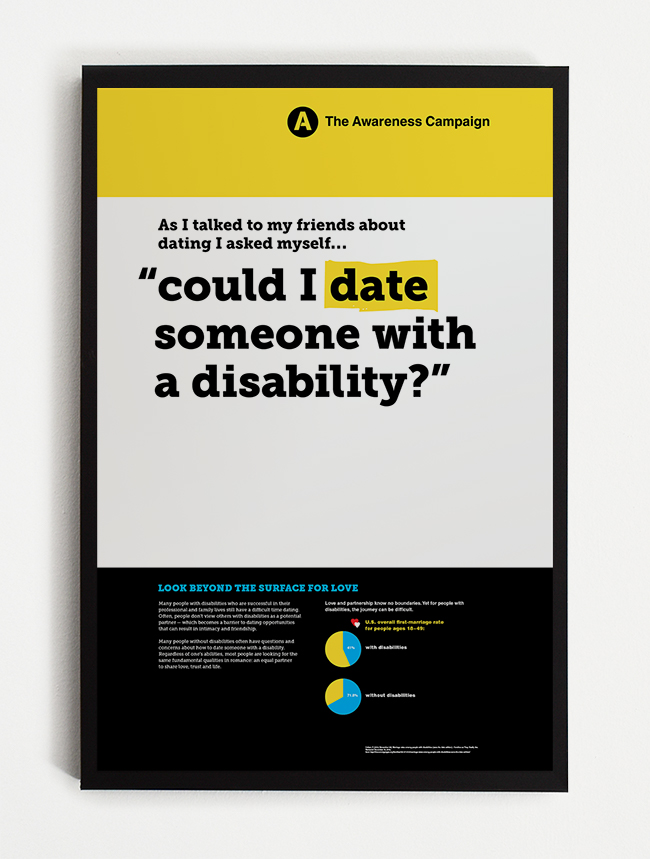
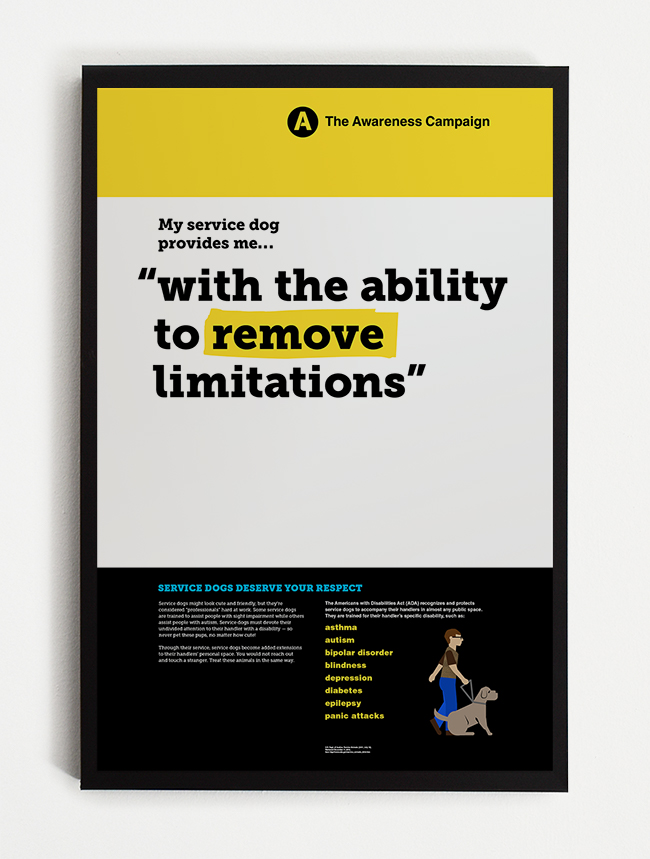
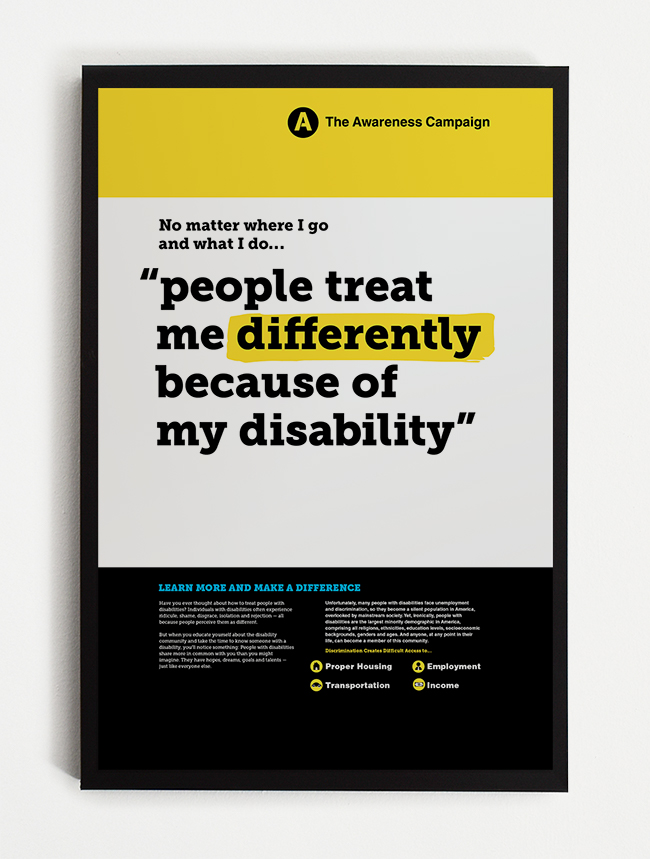
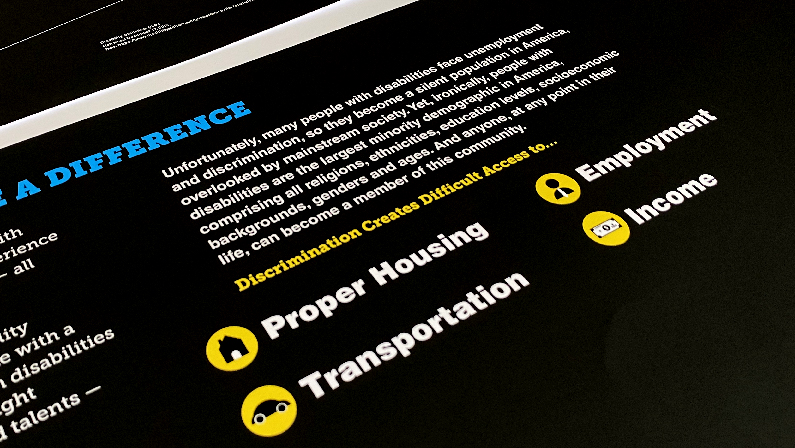
Information about the variety of ways that people with disabilities experience discrimination
disAbility101 Forums
Throughout the years, many efforts to address racism issues, gender inequities and sexism were taking place on the UMD campus.
The disAbility101 educational forums supported the conversations about various disability topics.
I hosted the forums on a bi-monthly basis. I designed posters to promote the forums to the campus community. The goal was for students, staff, and faculty to learn more about the various barriers that people with disabilities may experience on campus.
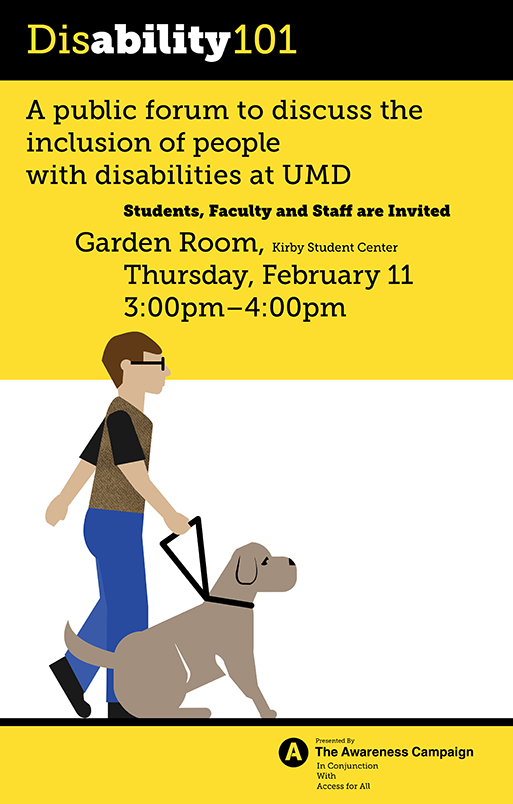
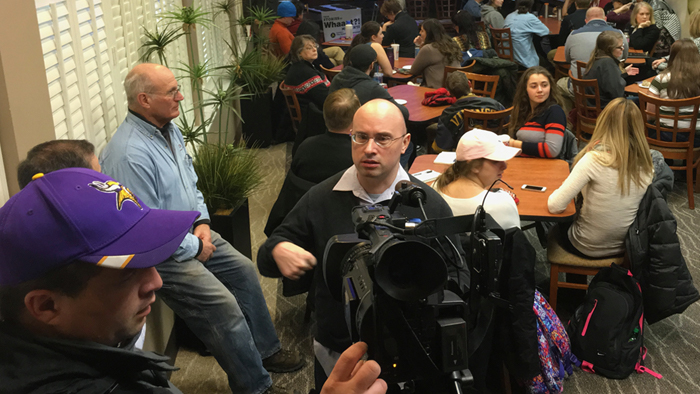
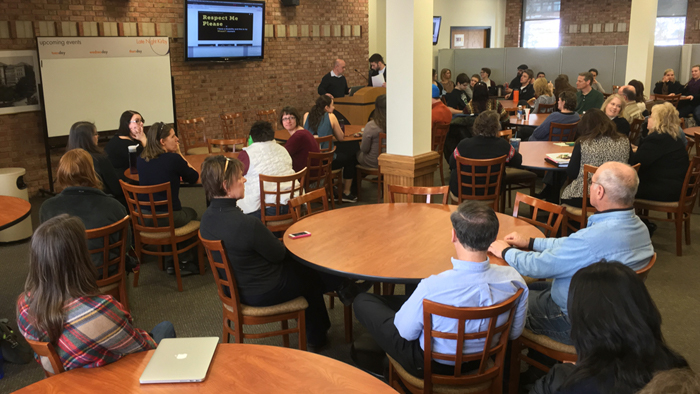
The Effectiveness of the Posters
Each person who attended the forums was given a survey regarding the posters’ effectiveness. They provided helpful feedback for how the posters shed light on disability issues that were not widely known. Further, the posters met their goal because disability injustices are often not mentioned when society at large addresses inclusion, diversity, and justice for marginalized groups.
